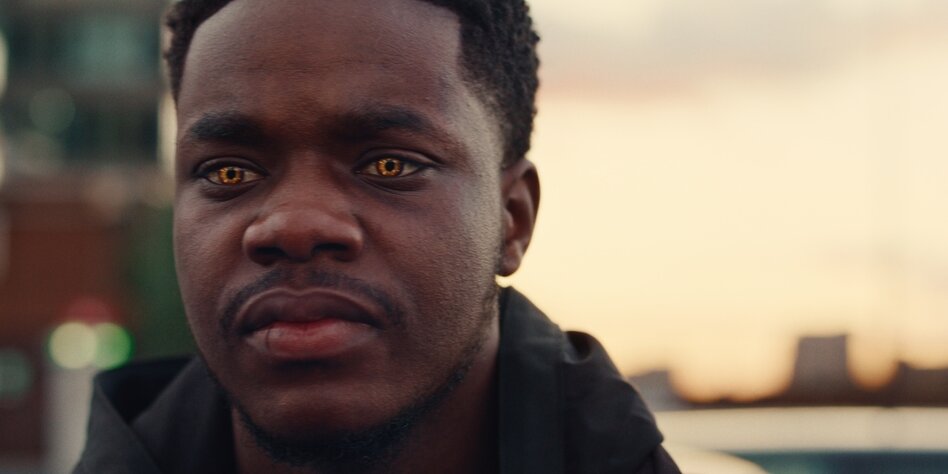The Netflix series “Supacell” tells the story of precarious life in London, racism and people who suddenly have superpowers.

In “Supacell,” delivery man Michael (Tosin Cole) suddenly gains supernatural abilities after a near-death experience. Photo from: Netflix
When London parcel delivery man Michael (Tosin Cole) is threatened on the street by a gang of youths and an argument breaks out, an attacker pulls out a knife and stabs him in the stomach. A moment later, the dying Michael is suddenly teleported back in time just a few minutes, at first unaware of what is happening, he relives that murderous moment of the knife attack, this time behaving defensively and surviving. What has happened there?
The handful of young black men from South London who are shocked to discover in the Netflix series “Supacell” that they suddenly have superpowers ranging from time travel to telekinesis and lightning strikes, otherwise find it difficult to cope with everyday life in the British metropolis.
Nurse Sabrina (Nadine Mills) fights for a promotion and instead has to listen to racist comments from patients. Andre (Eric Kofi-Abrefa), who has a criminal record, loses his job at the call center and barely manages to pay child support for his teenage son, who is in danger of taking the wrong path. Rodney (Calvin Demba) sells marijuana and gets into trouble with his supplier. And young Tazer (Josh Tedeku) is nearly killed in a massive fight in a youth gang war.
The lively six-part sci-fi series by 35-year-old hip hop and filmmaker Rapman (Andrew Onwubolu) tells a slightly different superhero story of black South London. Unlike the usual Marvel or DC-style superhero genre, there are no ridiculous costumes, no celebrity status for people with supernatural abilities, and no moralistic pats on the back because the world has been saved again.
Sickle cell anemia
The heroes of “Supacell” are precarious people who constantly fight for their social status and against everyday racism, are behind on rent or are under enormous pressure because all their parents suffer from sickle cell anaemia. This hereditary disease is widespread among black communities and there has been a political debate for years, especially in the USA, about the relationship between the lack of research into this disease, poor healthcare for blacks and structural racism.
In “Supacell,” a terrible hereditary disease produces superpowers for a few black people. It is not surprising that a government agency soon controls them repressively and even imprisons some with superpowers.
What to do with these superpowers? To enrich yourself personally or work for others? That will soon be the central question. For the rest, the series works according to the well-known fantasy formula, like “Stranger Things”. The isolated heroes must first find each other in order to collectively fight the common threat, in this case a government agency led by the evil technocrat Ray (Eddie Marsan).
Fancy restaurants and demolished factories
The series creates a fascinating social and cultural overview of the black and Jamaican communities around London's Brixton district, featuring hip hop, soul and pop music. He goes to bars and clubs, to urban wastelands where young people attack each other, to half-demolished factories where drugs are sold, but also to an elegant restaurant where Michael meets his lover Dionne (Adelayo Adedayo) with great nostalgia. Bourgeois normality proposes marriage.
Series creator Rapman, whose debut film “Blue Story” (2019) tells a South London gangsta rap story, wrote and directed the script for “Supacell.”
Several actors spoke very positively to the BBC about the project, which almost exclusively involves black people working not only in front of but also behind the camera. It will be interesting to see if the series, which has been praised by English critics, will continue. Ends with a cliffhanger. The struggles of black superheroes can continue.
